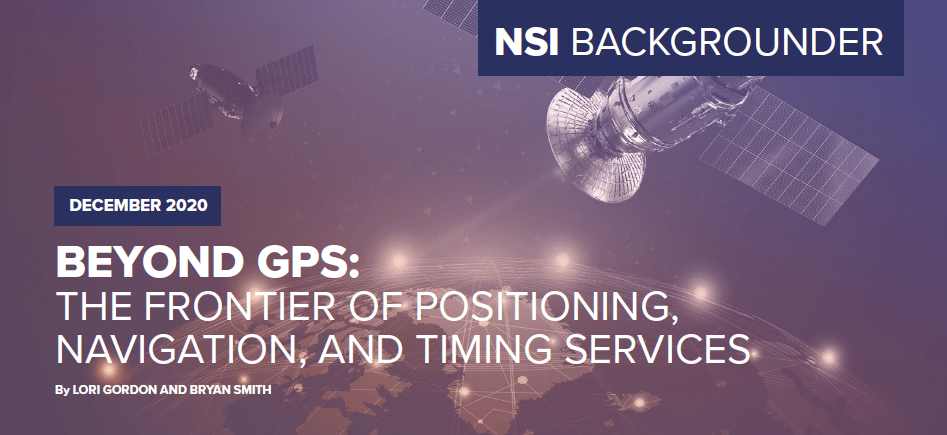A new backgrounder from the National Security Institute (NSI) at George Mason University’s Antonin Scalia Law School highlights critical issues facing policymakers working to maintain America’s technological advantage in positioning, navigation, and timing (PNT).
Entitled “Beyond GPS: The Frontier of Positioning, Navigation, and Timing Services,” the backgrounder provides insights about the importance of PNT in the protection of national critical infrastructure. According to an NSI press release, the backgrounder’s co-authors — NSI Visiting Fellow Lori Gordon and NSI Senior Fellow Bryan Smith (also a member of the Satelles Advisory Board) — structure their analysis as follows:
- describing the critical role of GPS and its vulnerabilities in supporting national defense and critical infrastructure;
- mapping the policy and legislative direction for enhancing PNT resilience;
- characterizing contrasting industrial policies for improving GPS resilience and developing alternative PNT technologies; and
- identifying key items to watch in the future.
The NSI backgrounder explains why pursuing a range of diverse PNT solutions is the best approach to achieving national resilience. As Mr. Smith points out, “Our security, safety, and commerce all rely on GPS, but our nation is highly vulnerable to loss or manipulation of this very weak signal. The good news is that we have the technologies and a newly-emerged industry that can provide diverse, resilient back-ups for GPS.”



